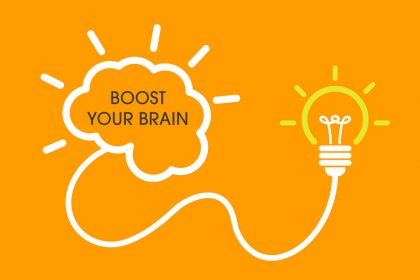From burnout to balance: How restful sleep transforms professional wellbeing
In our busy lives, we often forget how important sleep is. We work late and cut back on rest to get more done, but this can actually make things harder for us.
Sleep helps us do better at our jobs, but when we don’t get enough, we can end up feeling exhausted and less satisfied with our work.
This article talks about how getting the right amount of good sleep can make a difference in our professional wellbeing, and how it helps keep us from feeling burnt out.
We’ll go over some tips for sleeping better and strategies to avoid burnout, so we can keep a work-life balance and stay on top of our game.
Sleep’s impact on professional wellbeing
Ample sleep can boost your focus, productivity, and creativity. When you’re adequately rested, you’re more likely to perform at your best, making sound decisions and solving problems more efficiently.
If you’ve been pushing the limits, asking yourself, “How long can I stay awake to finish this task?”, you’re not alone. It’s tempting to trade sleep for work in our non-stop professional world, yet this can lead to a vicious cycle of diminishing returns.
Work pressures often eat into our resting hours, with deadlines and long hours tempting us to burn the midnight oil. But, remember, going without adequate sleep can backfire, leaving tasks uncompleted as our bodies and minds demand the rest we’ve sacrificed.
Lack of sleep can lead to burnout. It’s harder to manage stress, control emotions, and stay motivated when you’re running on empty. Plus, chronic sleep deprivation can harm your physical health, further impacting your work performance.
How to improve sleep for mental and physical wellbeing
Ensuring a good night’s sleep is essential for keeping your professional edge sharp. Here’s how you can improve your sleep quality and, with it, your professional wellbeing:
- Set a regular sleep schedule: Aim to go to bed and wake up at the same time every day, even on weekends. Consistency reinforces your body’s sleep-wake cycle.
- Create a restful environment: Make your bedroom a calm haven. Keep it cool, dark, and quiet. Consider using earplugs, a white noise machine, or blackout curtains if needed.
- Limit screen time before bed: The blue light from phones, tablets, and computers can disrupt your ability to fall asleep. Try to disconnect at least an hour before bedtime.
- Be mindful of diet and exercise: Avoid large meals, caffeine, and alcohol close to bedtime. Incorporate regular physical activity during the day, but not too close to bedtime.
- Establish a pre-sleep routine: Develop a relaxing bedtime ritual to signal your body it’s time to wind down. This could include reading, taking a warm bath, or meditative activities.
- Manage stress: Keep your daytime stress in check with time management techniques, regular breaks, and relaxation methods like deep breathing or yoga.
Understanding employee burnout
Employee burnout is a psychological syndrome manifested by persistent fatigue, a sense of failure, and decreased job satisfaction, often triggered by prolonged exposure to workplace stress.
It’s like running a marathon without a finish line in sight, and you’re just expected to keep going. You might feel constantly tired, no longer find joy in your work, and even start doubting your abilities.
It’s important to recognize these signs early on. You’re not alone, as this is a common issue faced by many professionals. Understanding burnout is the first step towards combating it.
The science behind burnout
Burnout is triggered by prolonged exposure to stress. It’s rooted in the effort-recovery theory, which suggests that your body needs time to recuperate after exerting effort. When you’re constantly under stress, your body doesn’t get this recovery time, leading to burnout.
Your workplace plays a significant role here. High job demands paired with low control over your work predict burnout. You’re more likely to feel burnt out if you’re not receiving adequate social support at work.
Recognizing burnout symptoms
As you navigate your professional life, it’s crucial to keep an eye out for burnout symptoms, which can serve as red flags.
If you’re persistently tired, lacking energy, or feeling a sense of failure and self-doubt, you might be experiencing burnout. Other signs include feeling trapped, defeated, or a loss of motivation and interest in your work.
Don’t ignore a decrease in satisfaction or accomplishment either. Burnout sneaks up on you, often masquerading as just another rough patch. However, these symptoms can undermine your wellbeing and productivity if not addressed promptly.
Initial burnout recovery strategies
Once you’ve identified the signs of burnout, it’s time to start implementing initial recovery strategies to regain your professional wellbeing.
- Begin by taking regular breaks to rejuvenate both mentally and physically.
- Establish clear boundaries between work and personal life to avoid overworking. Try to limit your exposure to work-related technology outside of office hours.
- Engaging in regular physical exercise can help relieve stress and improve your mood.
- Prioritize getting adequate sleep and rest. Sleep is a powerful restorative tool that can significantly improve your mental and physical health.
The role of self-care

Consider self-care as a three-tiered structure.
1) Physical care
- Regular exercise
- Balanced diet
- Adequate sleep
2) Emotional care
- Stress management techniques
- Positive self-talk
- Pursuit of hobbies
3) Social care
- Maintaining healthy relationships
- Seeking support when needed
- Setting boundaries
Each level is equally important and interconnected. Ignoring one can topple your wellbeing.
Maintaining wellness and balance
Maintaining a healthy work-life balance isn’t just a one-time effort, it’s a continuous process that requires your attention and commitment.
You’ll need to regularly re-evaluate your priorities, adjust your schedule, and maintain healthy habits. It’s crucial to create boundaries between work and personal life. Reserve time for activities that replenish your energy and bring you joy.
Don’t underestimate the importance of proper sleep. It’s not just about quantity but also quality. Good sleep boosts your mood, productivity, and overall health.
Keep in mind that you’re not a machine. Take breaks when needed, eat balanced meals, exercise regularly, and practice mindfulness.
Strive for balance, not perfection. It’s okay to have off days. The key is to stay aware, make necessary adjustments, and keep going.










